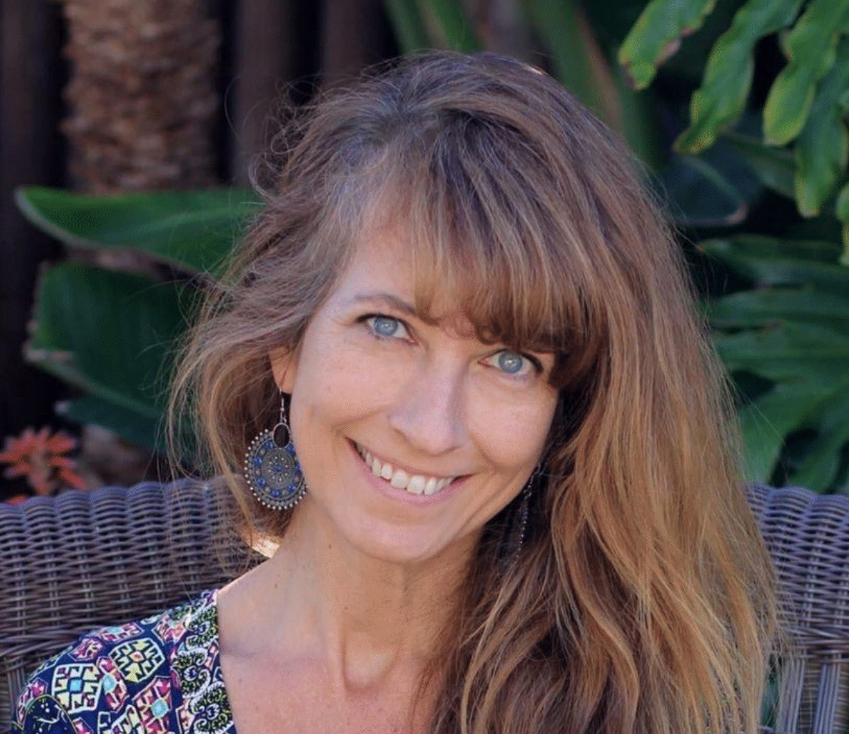Behind the story: Q&A with award-winning novelist Tammy Greenwood
Photo courtesy Tammy Greenwood
Author Tammy Greenwood has written 13 novels, all of which share a trademark eloquent style of writing and a recurring theme of loss. Each novel has also received literary honors; Greenwood has won a San Diego Book Award on four different occasions.
May 31, 2021
At the tender age of 11, author Tammy Greenwood lost her infant twin sisters due to heart and lung issues. Greenwood channeled her grief into writing, and English quickly became her favorite subject in school; Greenwood’s teachers consistently praised her creative work. Greenwood planned on becoming a doctor throughout high school to prevent other families from experiencing the loss her family faced all those years ago. One of her English teachers, however, saw potential in her work and encouraged her to pursue writing full-time.
Greenwood went on to pursue an English degree at the University of Vermont, later earning a master’s degree in English at Northern Arizona University and a Master of Fine Arts in creative writing at the University of Washington. All 13 of Greenwood’s books share a trademark eloquent style of writing and a recurring theme of loss. Each novel has also received literary honors; Greenwood has won a San Diego Book Award on four different occasions.
Greenwood currently teaches online classes at The Writer’s Center, a nonprofit organization that holds creative writing workshops for published and aspiring writers alike. She lives in San Diego with her husband and two children.
Responses have been edited for length and clarity.
The Black & White: What was the process of writing your first novel like?
Tammy Greenwood: I wrote lots and lots of stories and poems before my first book was published. In graduate school, I wrote the first novel that I managed to secure an agent with, but she just wasn’t able to sell it. I ended up writing another book afterward, Breathing Water, and that became my first published novel when I was fresh out of graduate school. I was so excited. I still remember the phone call when my agent at the time told me that someone wanted to purchase the book. There’s nothing that compares to that feeling.
Then the first review that I got was terrible. I thought, ‘Okay, I guess my career is over.’ I remember a lot of ups and downs at that time.
B&W: What’s been your experience with negative critiques?
TG: I’ve had reviewers not really understand the ideas I was trying to get across in my books, and I think that’s the hardest critique; that I haven’t communicated the messages I was trying to convey. I file those reviews away in the back of my brain because they’re hard to deal with. A lot of writers don’t look at their reviews, but I always do because those reviewers embody the readers I’m trying to communicate with.
I’ve developed a thicker skin against critiques as I’ve gotten older. Not every book is for everybody. But it still hurts if criticism is directed towards a novel that you know people are going to be exposed to. There’s nothing worse than thinking that individuals are going to read a review and then not want to read the book.
B&W: Does your writing process remain constant for every novel you write?
TG: I have a fairly consistent approach. I spend a lot of time thinking about a story before I write it. When I sit down to write the first draft, it’s usually very fast — six weeks or eight weeks when I just knock out the bare bones of the plot. Then I spend about a year fleshing the story out. I spend a lot of time on the first 50 pages, and once those proper seeds are planted — like the character’s internal wishes and external goals — then the rest of the book is easier to write.
When you’re writing a novel, even though it’s fiction, it’s really you. It’s where you are in your life and about issues that are consuming you. The questions that you have work themselves out through your stories. I have a lot of story ideas that I probably won’t transform into novels for several years. They’re still incubating in my imagination.
B&W: Was there ever a time when you felt ready to give up on a manuscript?
TG: I’ve given up on manuscripts when my vision turned out to be better in my mind than on the page. I can usually tell early on if a story isn’t working — I won’t push an idea if it fizzles out. It’s sort of like love. You get excited, you get a crush on your project and then you actually spend time on the project, and you think, ‘This one’s not so great.’ That’s why I give myself a lot of time to think about a story possibility. If it’s still thrilling me two months later, then I’m like, ‘Okay, this book needs to be written.’
B&W: Is there a strategy that has brought you success in getting your books published?
TG: I really try to focus on the creative process and produce a beautiful piece of art without worrying about the business part. When you’re able to do that and remain true to your voice, I think that’s how meaningful writing happens. I work hard to figure out which types of stories I’m passionate about because that excitement translates onto the page. It has to come from that white-hot place inside. It’s an intuitive thing. You can feel it when a book has personal meaning for you, and if it has personal meaning for you, it’s going to have personal meaning for others as well.
B&W: What made you want to become a teacher and help others go into the writing field?
TG: I really love being around other writers and sharing my experiences. It’s difficult to teach students to write well, but I think it’s valuable for aspiring authors to hear from others who have prevailed. Teaching, for me, is a distillation of all of the knowledge I’ve acquired over 20 years of being a professional writer. That’s joyful for me. I love being around people who appreciate stories and get it. They understand what it feels like when that magic happens, when — all of a sudden — the world that you created comes to life on the pages.
B&W: If there was one piece of advice you could have given yourself when you started, what would it be and why?
TG: There’s a fantasy around what it means to be a writer, and then there’s the reality. The truth is that success takes hard work, discipline and a lot of luck. It’s a perfect storm of those attributes. I always talk about these ‘P’s’ that you need: passion, because you have to love writing more than anything; patience, because you have to wait for opportune circumstances to transpire; and perseverance, because there’s always going to be obstacles in the way of what you’re trying to do.
I would want to prepare myself for the roller coaster that being a writer is. You don’t just ascend — there are a lot of ups and downs and a lot of failures. But it’s okay, because it’s still worth the ride.









